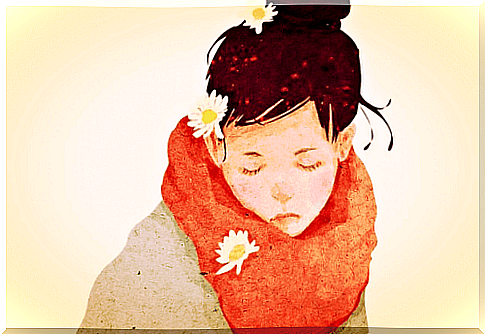Loneliness Protects Us From Potential Harm

Voluntarily chosen loneliness protects us and is not just a soothing balm, but an effective therapy to reconnect with ourselves. Sometimes it is also a way to establish distance between us and things we should avoid. Loneliness protects us from what can upset us or disturb our inner peace.
We talk about what psychology defines as “functional loneliness” – a concept that gives shape to something more or less familiar: the need to distance ourselves from harmful or toxic environments so that we can find ourselves and regain our psychological well-being.
Here we are not talking about involuntary loneliness. This would, for example, be an isolation caused by poor social conditions or grief linked to not having significant company.
In this case, there is an important therapeutic component, and that is the power to repair basic factors, such as self-esteem and personal priorities. It is to take back an intimate and private space that has been taken away from us.
As Pearl Buck – author and winner of the Nobel Prize in Literature – once said, there are all the beautiful rivers within us that must be renewed from time to time in order for us to continue to feel alive. Strange as it sounds

Most of us are scared of loneliness. In fact, it is enough to imagine us walking in an abandoned shopping center on a Saturday afternoon for the alarm bells to start ringing. This is because of a basic defense mechanism – an instinct that reminds us that we can not survive alone. People are naturally social and have survived by living in groups.
With that said, in our daily lives we have found something more terrifying than an empty mall. Various studies show that almost 60% of all married people feel lonely. 70% of all teenagers feel lonely and misunderstood even though they have many friends.
This reminds us that loneliness is not just about the number of people in our lives, but about the emotional quality of our bands.
Something that often happens is that we validate and perpetuate things that generate unhappiness. We feel lonely, misunderstood and burnt out at work, but stay because we have to make money.
We go out with the same people as always because we have been friends with them all our lives. How can I leave them now? There are even people who maintain love relationships even though they feel lonely because they are afraid of the emptiness of not having anyone by their side.

All these examples give us a picture of dysfunctional loneliness. Dysfunctional loneliness means that we set up defense mechanisms to avoid seeing reality. We tell ourselves that everything is good, that we are loved, that others value everything we do. Thinking that way is like a drowning person sticking his head out to ask for more water.
Unhappiness does not heal with more suffering. No one deserves to feel alone in the company of someone else.
Sometimes a person may begin to focus on satisfying the needs of others when he or she is in an oppressive, uncomfortable, and selfish environment. This in the hope of sooner or later having their own needs met.
In this case, there is no choice but to face reality and try to find a solution. Chosen loneliness, distance and a period devoted to ourselves is always healthy, necessary and cleansing.
We are not talking about a period of isolation and evasion.

Dedicating time to ourselves is a recipe that never fails, and loneliness protects us when it is voluntary. Getting our own space back is that.
This can take weeks or months; we all have our own rhythm and timing that we must accept and respect.
Freely chosen loneliness at certain times in life can not just heal and put our pieces in place; it’s also a way to learn how to build our own personal filters. These filters screen out the bad and let through things and people that make us feel good, that adjust to our emotional frequencies and the special places in our heart.









